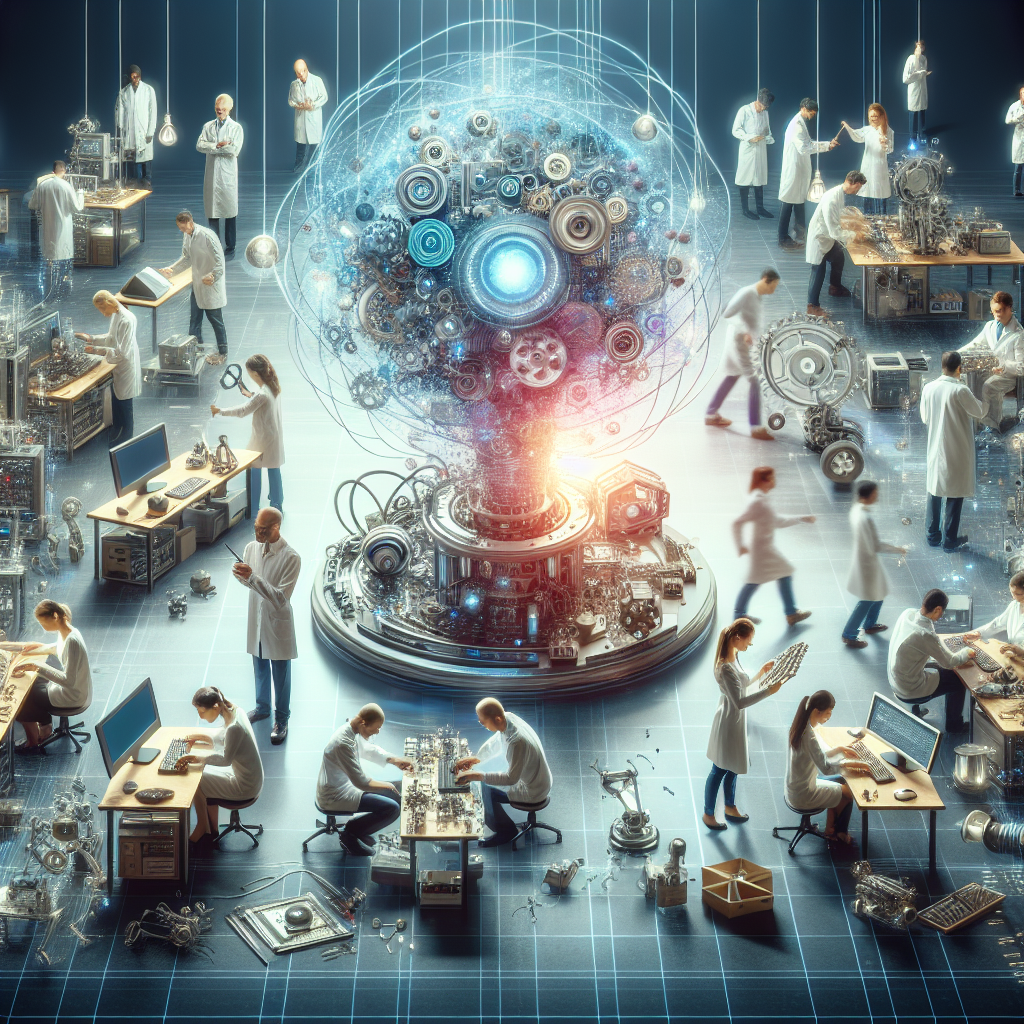The Race for AGI: Who Will Develop the First Truly Intelligent Machine?
Artificial General Intelligence (AGI) is a concept that has captivated the minds of scientists, researchers, and technologists for decades. AGI refers to a machine that possesses the ability to understand, learn, and adapt to new situations in a way that is indistinguishable from human intelligence. While current artificial intelligence (AI) systems excel at specific tasks, such as image recognition or language translation, they lack the general intelligence needed to truly understand and interact with the world in a human-like manner.
The race to develop AGI is a high-stakes competition that has attracted the attention of some of the world’s most powerful technology companies, research institutions, and governments. The potential benefits of AGI are vast, ranging from revolutionizing healthcare and education to transforming the way we work and live. However, the risks are equally significant, with concerns about job displacement, ethical implications, and the potential for AGI to surpass human intelligence and become uncontrollable.
In this article, we will explore the current state of the race for AGI, the key players involved, and the challenges and opportunities that lie ahead. We will also address some frequently asked questions about AGI and its implications for society.
The Current State of the Race for AGI
The development of AGI is a complex and multifaceted endeavor that requires advancements in a wide range of fields, including computer science, neuroscience, cognitive psychology, and philosophy. While progress has been made in each of these areas, no one has yet succeeded in creating a truly intelligent machine that can rival human intelligence.
One of the leading contenders in the race for AGI is OpenAI, a research organization founded by Elon Musk and others with the goal of developing artificial general intelligence in a safe and beneficial way. OpenAI has made significant strides in the field of AI research, with notable achievements such as creating AI systems that can play complex games like Dota 2 and generate realistic text and images.
Another key player in the race for AGI is DeepMind, a subsidiary of Alphabet Inc. (the parent company of Google) that is focused on developing AI systems with human-level intelligence. DeepMind gained international acclaim in 2016 when its AlphaGo program defeated the world champion Go player, a feat that was previously thought to be impossible for AI.
Other companies and research institutions, such as IBM, Microsoft, and academic labs around the world, are also actively working on developing AGI. Each of these organizations brings unique expertise and resources to the table, and the competition between them is fierce.
Challenges and Opportunities
Developing AGI is a monumental challenge that requires overcoming a number of technical, ethical, and societal hurdles. Some of the key challenges that researchers face include:
– Understanding the nature of intelligence: Despite decades of research, scientists still do not fully understand how intelligence works in the human brain. Replicating this complex and multifaceted phenomenon in a machine is a daunting task.
– Scalability and efficiency: Current AI systems are computationally intensive and require vast amounts of data to learn. Developing AGI that is both scalable and efficient remains a major challenge.
– Ethical considerations: The potential impacts of AGI on society are vast, ranging from job displacement to privacy concerns to the risk of misuse. Ensuring that AGI is developed in a responsible and ethical manner is crucial.
– Control and safety: There is a real risk that AGI could surpass human intelligence and become uncontrollable. Ensuring that AGI is developed in a way that is safe and secure is of paramount importance.
Despite these challenges, the opportunities presented by AGI are immense. AGI has the potential to revolutionize virtually every aspect of human society, from healthcare and education to transportation and entertainment. By developing AGI in a responsible and ethical manner, we can harness its power to improve the lives of people around the world.
Frequently Asked Questions
Q: When will AGI be developed?
A: The timeline for developing AGI is highly uncertain, with estimates ranging from a few decades to a century or more. While significant progress has been made in recent years, creating a truly intelligent machine that rivals human intelligence remains a formidable challenge.
Q: What are the potential risks of AGI?
A: The risks of AGI are vast and diverse, ranging from job displacement to ethical concerns to the potential for AGI to surpass human intelligence and become uncontrollable. Ensuring that AGI is developed in a safe and responsible manner is crucial.
Q: How can we ensure that AGI is developed ethically?
A: Ensuring that AGI is developed in an ethical manner requires a multi-faceted approach that involves input from a wide range of stakeholders, including researchers, policymakers, and the general public. Developing guidelines and regulations for the responsible development of AGI is essential.
Q: What role will governments play in the development of AGI?
A: Governments around the world are beginning to recognize the importance of AGI and are taking steps to support research and development in this area. Ensuring that AGI is developed in a way that benefits society as a whole will require collaboration between governments, industry, and academia.
In conclusion, the race for AGI is a high-stakes competition that has the potential to transform the world in profound ways. While significant challenges remain, the opportunities presented by AGI are vast. By working together to ensure that AGI is developed in a safe and responsible manner, we can harness its power to improve the lives of people around the world.

